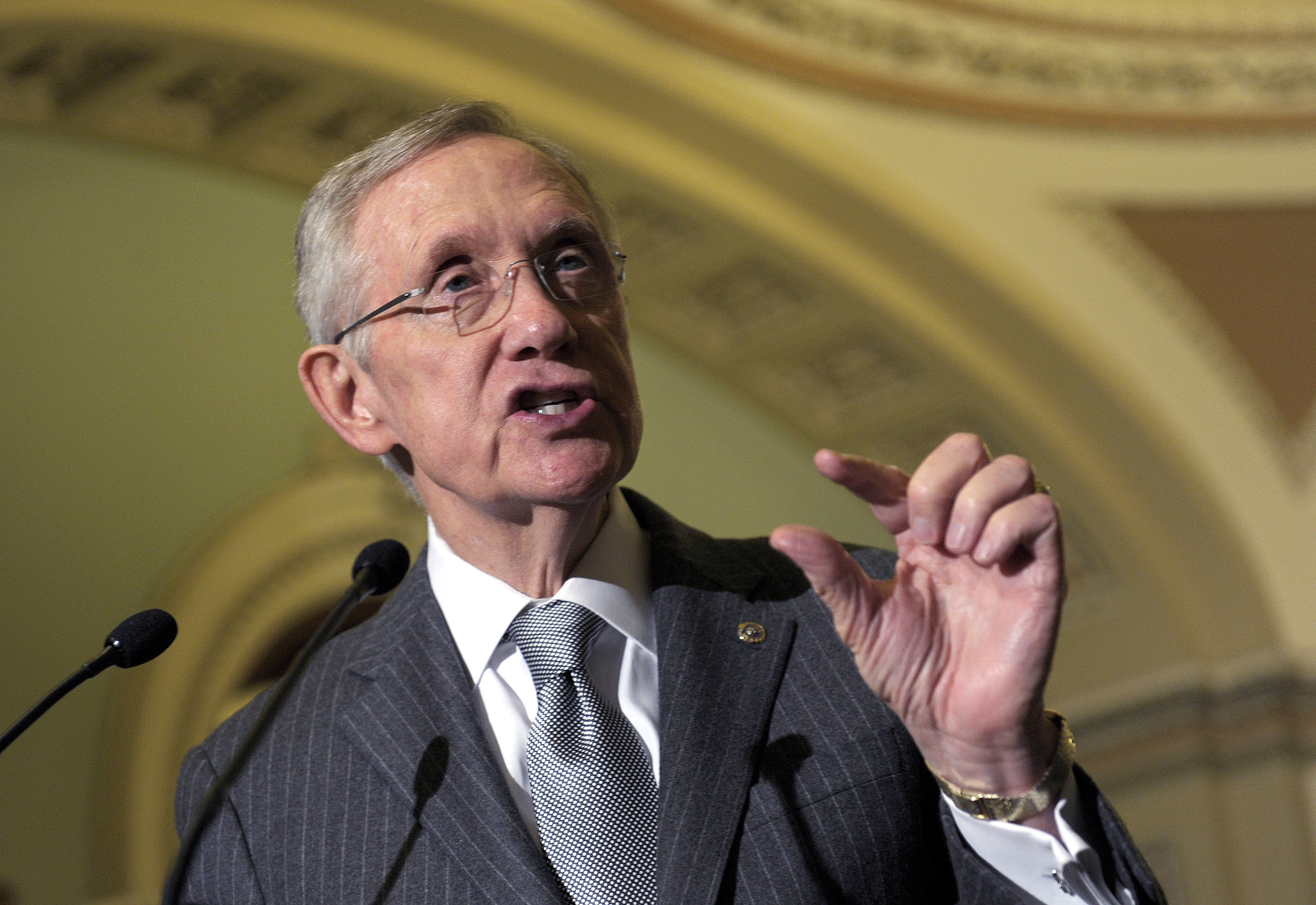Analysis: Fiscal compromise - and broken promises
Wednesday, December 19, 2012
WASHINGTON - In a town of broken politics, the path to compromise is littered with broken promises. It's called governing.
The rush to avoid economic calamity on Jan. 1 has President Barack Obama and House Speaker John Boehner out to cut a deal and sell it to their parties. The goal is a middle ground that would at least halt looming tax increases on virtually everyone, if not yield a far-reaching bargain to stabilize the nation's debt.
Yet, the political compromise the public wants is smashing into another political force - the so-called iron-clad promises made to that same voting public.
Days after he won a second term, a beaming Obama reminded everyone about a defining promise of his re-election: The wealthy must pay more to help shrink the nation's ballooning debt. He insisted he would not go for a deal in which families making more than $250,000 are "not asked to pay a dime more in taxes."
Except now he would do that.
To get a fiscal deal with Republicans, Obama raised his bottom line to people making $400,000 or more. He is also now willing to raise taxes on the middle class by agreeing to let a payroll tax cut expire - and by accepting a new inflation index that would, in addition to shrinking yearly increases for Social Security beneficiaries, push more people into higher tax brackets.
Instead of holding firm on his oft-repeated pledge to raise taxes on the top 2 percent of taxpayers, Obama's plan would hit less than the top 1 percent.
And then there's Boehner.
He said Republicans were willing to consider tax revenue, but not by raising tax rates on anyone. "Instead of raising tax rates on the American people and accepting the damage it will do to our economy, let's start to actually solve the problem," Boehner said after the election.
And now? Boehner is willing to let tax rates go up on Jan. 1, as long as it is only on people making over $1 million and that other parts of the deal fall into place. The part about damage to the economy for raising taxes on anyone, including the richest people, has disappeared.
In the hardest of political times, the hardest of lines tend to fall away.
"That's the reality of Washington. You don't get exactly what you want, but you do it for the benefit of the country," said Jim Kessler, senior vice president of Third Way, a think tank that advocates for the middle ground in American politics.
The group's surveys find what so many polls have shown - people want Democrats and Republicans to compromise. They want Washington to work.
Obama and Boehner know this. They are figuring out how far they can go without alienating voters or putting together a deal that has no chance of passing.
And they are bending or breaking promises, provided they can justify the broader result and claim they are not abandoning their principles.
The president, for example, can still say he would be extracting more tax revenue from the rich while preserving tax rates on families making $250,000 or less.
Predictably, the White House dismissed the broken-promise label.
Obama "has demonstrated a willingness to move towards the Republicans in order to achieve a deal," White House press secretary Jay Carney said.
Boehner is faced with tax rates going up on everyone regardless on Jan. 1. That's the law if Congress does nothing. So by shifting his stand on tax rates, he is at least poised to get something out of it, including deeper spending cuts and a commitment to tax reform in 2013.
If a deal comes together, that is.
Meanwhile, both leaders have to hold off the flanks of their parties.
Rep. Jim Jordan, of Ohio, the outgoing chairman of the conservative Republican Study Committee, said Boehner's plan crosses a dangerous line by enacting higher tax rates. "I think it's a mistake for the Republican Party, so that's what I think a lot of members are struggling with," Jordan said.
Liberal groups denounced the White House's inclusion of a different inflation index for benefit programs like Social Security that would cut average retiree benefits. It was the White House, they point out, that suggested Social Security should not be included in the negotiations because it does not drive up the federal deficit.
"He's breaking a pledge that he would not cut benefits," said Eric Kingson, founding co-director of Social Security Works and a co-chair of the Strengthen Social Security Coalition. "You can change the language, but people aren't fools. It's a cut."
The White House said any changes would include protections for the most vulnerable beneficiaries.
From the outside, some advocates aren't fixated on the haggling or the slippage in campaign promises.
National Urban League President Marc Morial, for one, said he was not bothered that Obama is proposing to raise taxes on people making $400,000 rather than the $200,000 for individuals, and $250,000 for families. "You are not going to win simply by taking a hardline position down the line," he said.
Added the Rev. Al Sharpton, a civil rights leader: "I would expect that the needle's going to move up and down on both sides. But I will not know if it moves beyond our comfort until we see the final deal."
